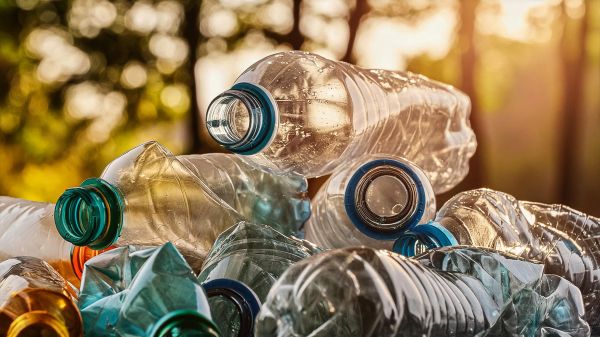Plastics

This collection explores innovative approaches to plastic pollution education beyond traditional knowledge transmission. Research from the UK shows children aged 11–15 have complex, contradictory relationships with plastics that educators should acknowledge, while a Canadian study immersed toddlers in plastic excess to create transformative sensorial encounters. The collection highlights effective structured interventions, including a hybrid middle school curriculum combining lectures and hands-on experiments that improved microplastic understanding, and Chile's tiered school certification program that enhanced students' waste behaviors. Additionally, the research introduces "ecomedia literacy" for analyzing environmental impacts of digital technologies and demonstrates how online courses with practical applications can inspire global action against plastic pollution.
For more information, see the eePRO blog: Beyond the 3Rs: New Frontiers in Plastic Pollution Education
This research explores how children aged 11–15 relate to plastics, discovering their interactions span critical knowledge in consumer cultures, unnoticed everyday routines, and creative engagement. The researchers recommend environmental educators acknowledge these complex, existing relationships rather than simply viewing plastics as a problem to solve.
This article evaluates a Massive Open Online Course on Marine Litter that successfully increased knowledge and inspired action among 33,000+ participants from 92 countries, with 64% reporting successful action plans and 72% sharing knowledge with others. The findings demonstrate that online environmental education with activating learning methods can effectively develop leadership and inspire informed action against marine plastic pollution globally.
This research introduces "ecomedia literacy" as a framework for teaching critical awareness of digital technologies' environmental impacts, including plastic pollution, through four interconnected zones: ecoculture, political ecology, ecomateriality, and lifeworld.
This study created a curriculum where Canadian toddlers were immersed in excessive amounts of plastic to disrupt their taken-for-granted relationships with these materials. Through six stories of children's encounters with plastic excess, the authors demonstrate how direct experiences with plastic's unruliness and persistence made its normally invisible presence visible and potentially transformative.
This research tested a hybrid curriculum combining lectures, hands-on experiments, and peer collaboration that significantly improved American middle school students' understanding of microplastics during the COVID-19 pandemic. Student-created posters and feedback revealed the effectiveness of multiple teaching methods in increasing environmental awareness, with 81% depicting aquatic pollution and 56% specifically addressing microplastics.
This study evaluated Chile's tiered green school certification program, finding that schools with the highest "excellent" certification level showed the strongest improvement in children's pro-environmental behaviors related to plastic waste. Interestingly, children in schools with basic certification often outperformed those in intermediate-certified schools, suggesting non-linear effects and the need to better differentiate benefits across certification levels.
